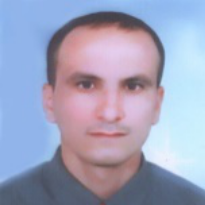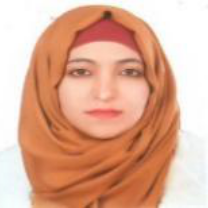International Journal of Computer Network and Information Security (IJCNIS)
IJCNIS Vol. 14, No. 6, 8 Dec. 2022
Cover page and Table of Contents: PDF (size: 409KB)
Design and Implementation of Adaptive Universal Filtered Multi Carrier for 5G and Beyond
Full Text (PDF, 409KB), PP.14-22
Views: 0 Downloads: 0
Author(s)
Index Terms
OFDM, Universal Filtered Multi-carrier (UFMC), Universal Filtered OFDM (UF- OFDM), Carrier Frequency Offset(CFO), Inverse Fast Fourier Transform (IFFT), QAM, OFDM-FSK, Cycle Prefix(CP), Maximum-Likelihood (ML), BER, LTE
Abstract
The current generation (5G) mobile communication system promises to accommodate a wide range of new applications and use scenarios, resulting in more flexible and unified connection. To satisfy the required criteria, the current waveform was replaced with new UF-OFDM, which combines the advantages of OFDM with enhanced spectral characteristics and greater resilience against time-frequency misalignments. However, its biggest disadvantage is the transmitter's computational complexity, which may be up to two hundred times that of OFDM if there is no reduction in complexity. The majority of current research on unique waveforms has focused on filter modification or performance enhancement strategies. UFMC with the use of adaptive filter (UFMC -FSK) is offered as a revolutionary technique in this study. The filter designed and used to transport information through the index modulation technique. As a result, each UF-OFDM sub band's used filter is chosen, so the data rate is enhanced according to a filter configured depending on original input data bits. The combined Maximum-likelihood (ML) decision metric for each sub band that is calculated at the receiver. Each sub band has a filter as well as data symbols that provide the minimal metric for making decisions are discovered. Furthermore, the bit error rate and power spectrum density are enhanced over the UF-OFDM technique, however there is some trade-off. Overall, the proposed system outperform typical UF-OFDM. Matlab simulations are used to assess the performance of the Adaptive UFMC system.
Cite This Paper
Mohammed H. Ali, Noora H. Sherif, "Design and Implementation of Adaptive Universal Filtered Multi Carrier for 5G and Beyond", International Journal of Computer Network and Information Security(IJCNIS), Vol.14, No.6, pp.14-22, 2022. DOI:10.5815/ijcnis.2022.06.02
Reference
[1]Y. Qiu, Z. Liu and D. Qu, "Filtered bank based implementation for filtered OFDM," 2017 7th IEEE International Conference on Electronics Information and Emergency Communication (ICEIEC), 2017, pp. 15-18.
[2]Y. Chen, F. Schaich and T. Wild, "Multiple Access and Waveforms for 5G: IDMA and Universal Filtered Multi-Carrier," 2014 IEEE 79th Vehicular Technology Conference (VTC Spring), 2014, pp. 1-5.
[3]S M Shamsul Alam, Anamika Saha, " Performance Analysis of FBMC over OFDM for High Data Rate MIMO Configurations", International Journal of Wireless and Microwave Technologies, Vol.11, No.4, pp. 20-33, 2021.
[4]Amin Naemi, "Detection and Extraction of OFDM Parameters Using Difference of Gaussians", International Journal of Wireless and Microwave Technologies, Vol.9, No.5, pp. 12-24, 2019.
[5]J. Nadal, “Filtered multicarrier waveforms in the context of 5G : novel algorithms and architecture optimizations To cite this version : HAL Id : tel-01829015 Jérémy Nadal Filtered Multicarrier Waveforms in the Context of 5G : Novel Algorithms and Architecture Optim,” 2018.
[6]C. D. Parekha and J. M. Patel, “OFDM Synchronization Techniques for 802 . 11ac WLAN,” vol.8, no. 4, pp. 1–13, 2018.
[7]E. Basar, U. Aygolu, E. Panayirci, and H. V. Poor, “Orthogonal Frequency Division Multiplexing with index modulation,” IEEE Trans. Signal Process. vol. 61, no. 22, pp. 5536–5549, Nov. 2013.
[8]S. Gokceli, E. Basar, M. Wen, and G. K. Kurt, “Practical Implementation of Index Mod. on - based waveforms,” IEEE Access, vol. 5, no. 1, pp. 25 463–25 473, Dec. 2017.
[9]M. Wen, X. Cheng, and L. Yang, “Index Modulation for 5G Wireless Communications,” Springer. AG2017, p. 154, 2017.
[10]T. Wild and F. Schaich, "A Reduced Complexity Transmitter for UF-OFDM," 2015 IEEE 81st Vehicular Technology Conference (VTC Spring), pp. 1-6, May,2015.
[11]M. Hussein Ali, N. Hani, and D. Jassim“ Design and Implementation of OFDM system with Energy Detection Spectrum Sensing for Cognitive Radio Networks Using HDL Coder Technique” Journal of Al-Turath University College Vol.2, issue 30, pp.94-105,2020.
[12]G. Wunder, M. Kasparick, T. Wild, F. Schaich, Y. Chen, S. t. Brink, et al., “5GNOW: Application Challenges and Initial Waveform Results “, Proceedings of Future Network & Mobile Summit 2013, Lisbon, July 2013.
[13]F. Schaich, T. Wild, Y. Chen “Waveform contenders for 5G – suitability for short packet and low latency transmissions” Bell Labs Stuttgart, Germany,2015.
[14]T. Wild, F. Schaich and Y. Chen, "5G air interface design based on Universal Filtered (UF-)OFDM," 2014 19th International Conference on Digital Signal Processing, 2014, pp. 699-704.
[15]B. Farhang-boroujeny, “Filter Bank Multicarrier Modulation : A Waveform Candidate for 5G and Beyond,” vol. 2014, 2014.
[16]R. Datta, N. Michailow, M. Lentmaier, and G. Fettweis, “GFDM interference cancellation for flexible cognitive radio phy design,” IEEE Veh. Technol. Conf., 2012.
[17]M. Danneberg, R. Datta, A. Festag and G. Fettweis, "Experimental testbed for 5G cognitive radio access in 4G LTE cellular systems," 2014 IEEE 8th Sensor Array and Multichannel Signal Processing Workshop (SAM), 2014, pp. 321-324.
[18]A. Amijavaheri, A. Farhng, A. RezzadehReyhani, and B. Farhang Borujeny, Impact of timing and frequency offsets on multicarrier waveform candidates for 5G,” in Proc. 2015 IEEE Signal Process. And Signal Process. Education Workshop (SP/SPE), pp. 178- 183, Aug. 2015.
[19]K. K. Kishore, P. R. Umar, and V. J. Naveen, “Comprehensive Analysis of UFMC with OFDM and FBMC,” Indian J. Sci. Technol., vol. 10, no. 17, pp. 1–7, 2017.
[20]W. Yongxue, W. Sunan, and W. Weiqiang, “Performance Analysis of the Universal Filtered Multi-Carrier (UFMC) Waveform for 5G System,” J. Phys. Conf. Ser., vol. 1169, no. 1, 2019.
[21]H. Nam, M. Choi, S. Han, C. Kim, S. Choi and D. Hong, "A New Filter-Bank Multicarrier System With Two Prototype Filters for QAM Symbols Transmission and Reception," in IEEE Transactions on Wireless Communications, vol. 15, no. 9, pp. 5998-6009, Sept. 2016.
[22]H. Nam, M. Choi, C. Kim, D. Hong and S. Choi, "A new filter-bank multicarrier system for QAM signal transmission and reception," 2014 IEEE International Conference on Communications (ICC), 2014.
[23]V. Vakilian, T. Wild, F. Schaich, S. Ten Brink, and J.-F. Frigon, “Universal- filtered multi-carrier technique for wireless systems beyond LTE,” in IEEE Globecom Workshops (GC Wkshps), pp. 223–228, 2013.
[24]Z. Guo, Q. Liu, W. Zhang and S. Wang, "Low Complexity Implementation of Universal Filtered Multi-Carrier Transmitter," in IEEE Access, vol. 8, pp. 24799-24807, 2020.
[25]L. Sakkas, E. Stergiou, G. Tsoumanis, and C. T. Angelis, “5G UFMC scheme performance with different numerologies,” Electron., vol. 10, no. 16, 2021.
[26]R. T. Kamurthi, S. R. Chopra and A. Gupta, "Higher Order QAM Schemes in 5G UFMC system," 2020 International Conference on Emerging Smart Computing and Informatics (ESCI), 2020, pp. 198-202.
[27]P. Manhas and M. . Soni, “Comparison of OFDM System in Terms of BER using Different Transform and Channel Coding,” Int. J. Eng. Manuf., vol. 6, no. 1, pp. 28–34, 2016.
[28]M. Wu, J. Dang, Z. Zhang and L. Wu, "An Advanced Receiver for Universal Filtered Multicarrier," in IEEE Transactions on Vehicular Technology, vol. 67, no. 8, pp. 7779-7783, Aug. 2018.

